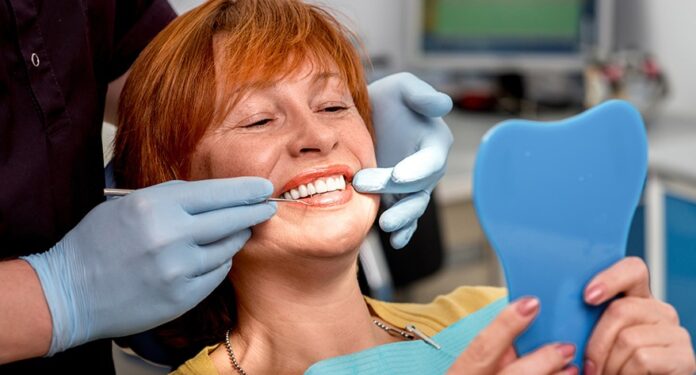Your smile is one of your most valuable assets, but did you know that gum disease can threaten its beauty and health? Many people underestimate the impact of this common condition. Gum disease starts off subtly, often without noticeable symptoms, and can progress rapidly if left untreated. It not only affects your gums but can also have serious repercussions for your overall oral health.
Understanding gum disease is crucial for maintaining a healthy mouth. Whether you’re experiencing mild irritation or more severe dental issues, being informed about this condition empowers you to take action. Let’s delve into what gum disease really is and how preventive dentistry in Anthem can help safeguard your smile against it.
What is Gum Disease?
Gum disease, also known as periodontal disease, is an infection of the tissues that surround and support your teeth. It begins with plaque buildup on your teeth—a sticky film of bacteria that forms after eating. If not removed through regular brushing and flossing, this plaque can harden into tartar.
When tartar accumulates, it irritates the gums and causes inflammation. This early stage is called gingivitis. Symptoms may include redness, swelling, or bleeding when you brush your teeth.
If left untreated, gingivitis can progress to more severe gum disease known as periodontitis. At this stage, the inflammation extends deeper into the supportive structures of the tooth. This can lead to loss of tooth attachment and even tooth loss over time if preventive measures are not taken immediately. Understanding these stages is key in recognizing gum disease before it escalates further.
Causes of Gum Disease
Gum disease primarily stems from plaque buildup on teeth. This sticky film contains bacteria that irritate the gums, leading to inflammation.
Poor oral hygiene is a major contributor. When brushing and flossing are neglected, plaque hardens into tartar, which can only be removed by a dental professional.
Certain lifestyle choices also play a role. Smoking or using tobacco products significantly increases your risk of developing gum issues.
Additionally, systemic health conditions like diabetes can affect gum health. Hormonal changes during pregnancy or menopause may heighten susceptibility as well.
Medications that reduce saliva flow can exacerbate the situation too. Saliva helps wash away food particles and neutralize acids produced by bacteria; without it, you’re more vulnerable to infection.
Symptoms of Gum Disease
Gum disease often begins subtly, making it easy to overlook its signs. One of the first symptoms is swollen or red gums. You might notice they bleed when you brush or floss. This bleeding can be alarming but is a common indicator of inflammation.
Another noticeable change could be bad breath that doesn’t seem to go away despite regular brushing. As gum disease progresses, teeth may start feeling loose or shifting positions in your mouth.
Sensitivity can also increase, especially when consuming hot or cold foods and drinks. Pain while chewing may follow as the condition worsens.
Foul taste lingering in your mouth can further signal an issue beneath the surface. Early detection through awareness of these symptoms is vital for effective treatment and prevention strategies later on.
Effects of Untreated Gum Disease on Oral Health
Untreated gum disease can wreak havoc on your oral health. As the condition progresses, it leads to inflammation and infection in the gums. This not only results in painful swelling but also encourages the formation of pockets between teeth and gums.
These pockets trap bacteria, causing further deterioration of gum tissue. In severe cases, tooth loss becomes a grim reality as roots are no longer securely anchored by healthy gums.
Moreover, periodontal disease has been linked to systemic issues beyond oral health. Research suggests correlations with heart disease, diabetes, and respiratory problems. The mouth serves as a gateway; neglecting its care could have wide-ranging effects on overall wellness.
Ignoring gum disease doesn’t just affect your smile; it can significantly impact daily life activities like eating or speaking comfortably. Prioritizing dental health is essential for maintaining quality of life long term.
How to Prevent and Stop Gum Disease
Preventing gum disease starts with consistent oral hygiene habits. Brush your teeth at least twice a day using fluoride toothpaste. Don’t forget to clean along the gum line where plaque often accumulates.
Floss daily to remove food particles and plaque between teeth that your toothbrush can’t reach. This simple step is crucial for maintaining healthy gums.
Incorporate an antibacterial mouthwash into your routine. It helps reduce bacteria in the mouth, lowering the risk of gum inflammation.
Eating a balanced diet rich in vitamins boosts your immune system, aiding in gum health. Foods high in vitamin C, like oranges and strawberries, promote healing and support gum tissue.
Stay hydrated as well; water helps wash away food particles and keeps saliva production up, which is essential for oral health.
Regularly scheduling dental check-ups ensures any issues are caught early before they escalate into serious problems.
Treatment Options for Gum Disease
Treating gum disease depends on its severity and your overall oral health. For mild cases, improved oral hygiene can often reverse early stages of the disease. This includes regular brushing, flossing, and using antibacterial mouthwash.
For more advanced gum issues, professional dental cleanings are essential. Dental professionals will remove plaque and tartar buildup that you may miss at home.
In some instances, scaling and root planing may be necessary. This deep cleaning procedure targets below the gum line to eliminate bacteria from tooth roots.
If these treatments aren’t effective, antibiotics might be prescribed to help fight infection. In severe cases, surgical options like flap surgery or bone grafts can restore damaged tissues.
Each treatment option aims to reduce inflammation and promote healthy gums while preventing future complications. Regular follow-ups with your dentist ensure that progress is monitored carefully throughout recovery.
Importance of Regular Dental Check-ups and Cleanings
Regular dental check-ups and cleanings play a vital role in maintaining your oral health. During these visits, dentists can spot potential issues before they escalate. Catching problems early saves time, money, and discomfort.
Professional cleanings help remove plaque and tartar that regular brushing can’t address. This process significantly reduces the risk of gum disease and cavities. A cleaner mouth means fresher breath too!
Additionally, dental professionals offer personalized advice tailored to your specific needs. They can recommend effective techniques to improve your at-home care routine.
Routine visits also keep you informed about changes in your oral health over time. This ongoing evaluation helps build a comprehensive picture of your overall well-being.
Prioritizing regular check-ups fosters a proactive approach to preventive dentistry in Anthem. It’s an investment not just for your teeth but for lasting overall health as well!
Maintaining Good Oral Hygiene for Overall Health
Good oral hygiene goes beyond a dazzling smile. It plays a crucial role in your overall health, influencing everything from heart health to diabetes management.
Brushing twice daily and flossing regularly are foundational steps. They help remove plaque, preventing gum disease and tooth decay. Incorporating an antibacterial mouthwash can provide extra protection against bacteria lurking in hard-to-reach areas.
Diet also matters significantly. Foods rich in vitamins and minerals support gum health, while sugary treats can lead to cavities and infections. Staying hydrated helps wash away food particles, reducing the risk of oral issues.
Regular dental check-ups allow for early detection of potential problems before they escalate. Your dentist can offer personalized advice tailored to your needs, ensuring you maintain optimal oral hygiene.
Remember that maintaining good oral health is not just about aesthetics—it’s essential for your overall well-being too.
Conclusion
Gum disease is a prevalent issue that affects many people, yet it can often be overlooked until it’s too late. Understanding what gum disease is and recognizing its symptoms are crucial steps in maintaining oral health. Knowing the causes helps you avoid risk factors, while awareness of the severe impacts of untreated gum disease emphasizes the importance of action.
Prevention should always be at the forefront. Maintaining good oral hygiene practices at home, along with regular dental check-ups and cleanings, plays a vital role in your defense against this condition. Treatment options vary based on severity but can lead to significant improvements when addressed early.
By prioritizing preventive dentistry in Anthem and being proactive about your oral care, you not only protect your gums but also support your overall well-being. Your mouth is an integral part of your health; taking care of it leads to better outcomes for both dental and physical aspects alike. Stay informed and vigilant—your smile will thank you!






























